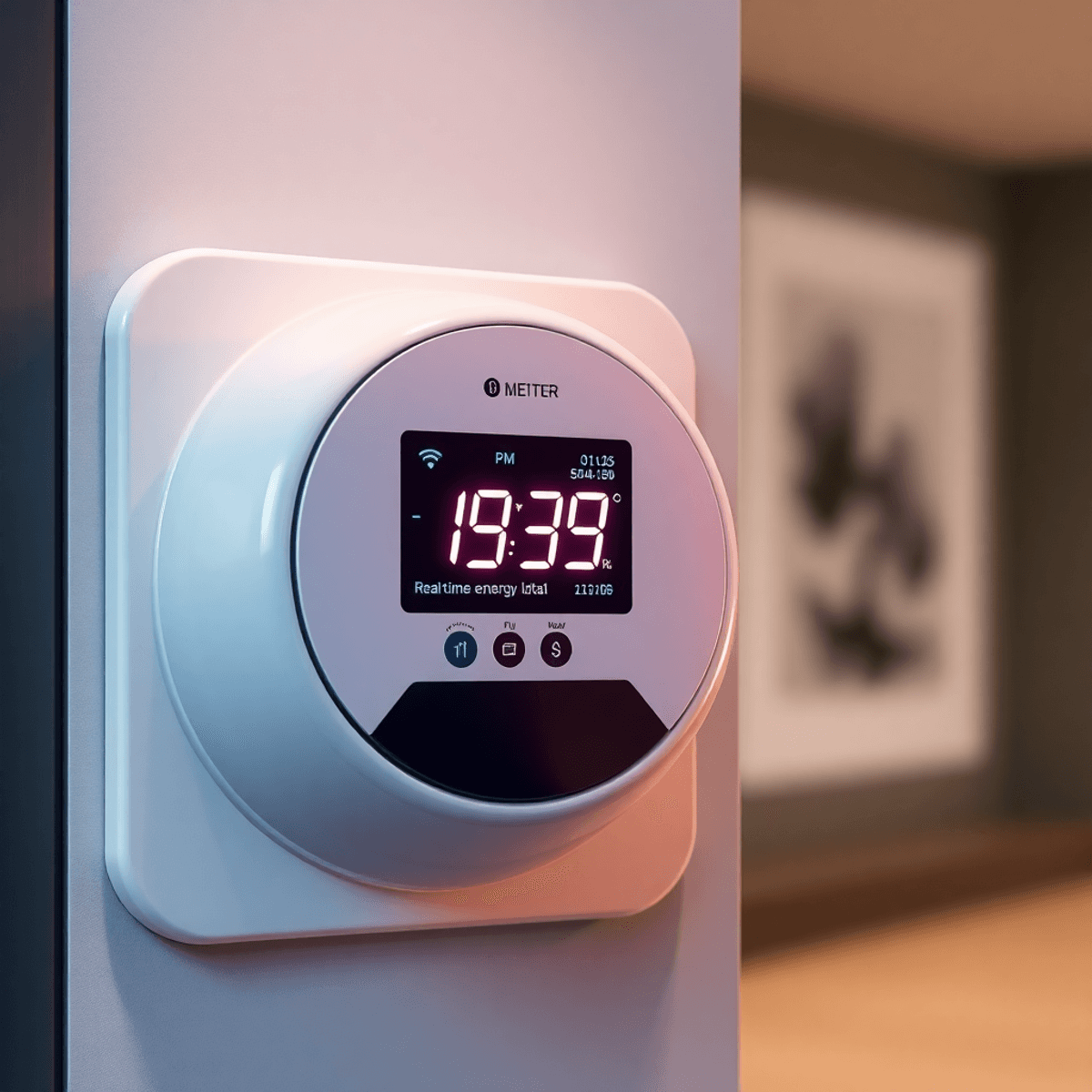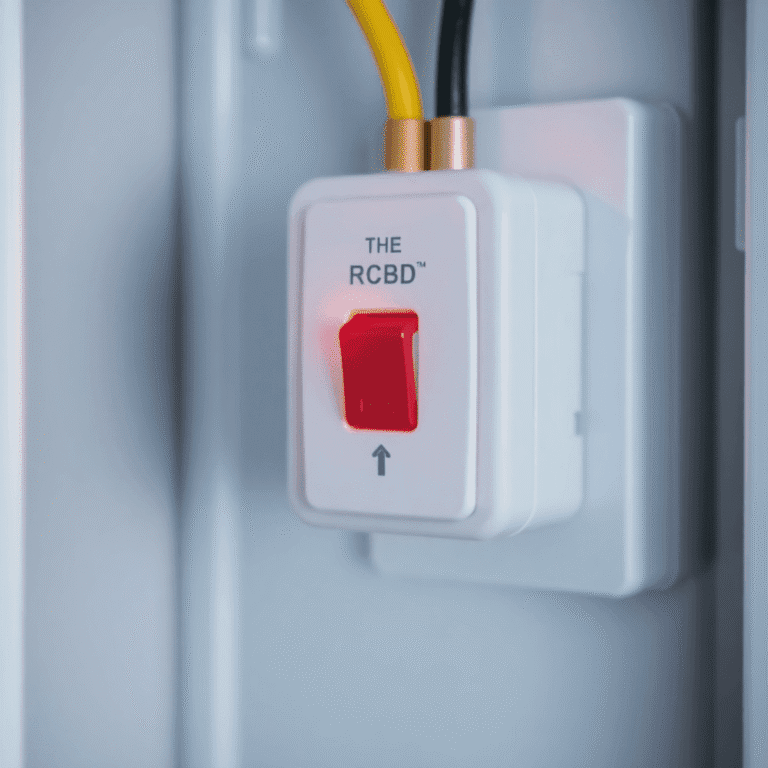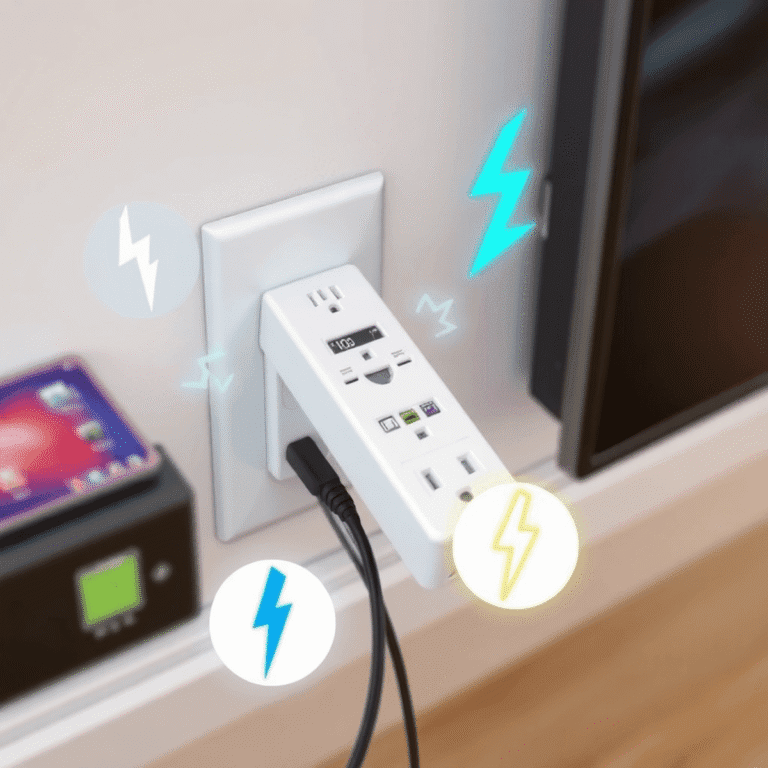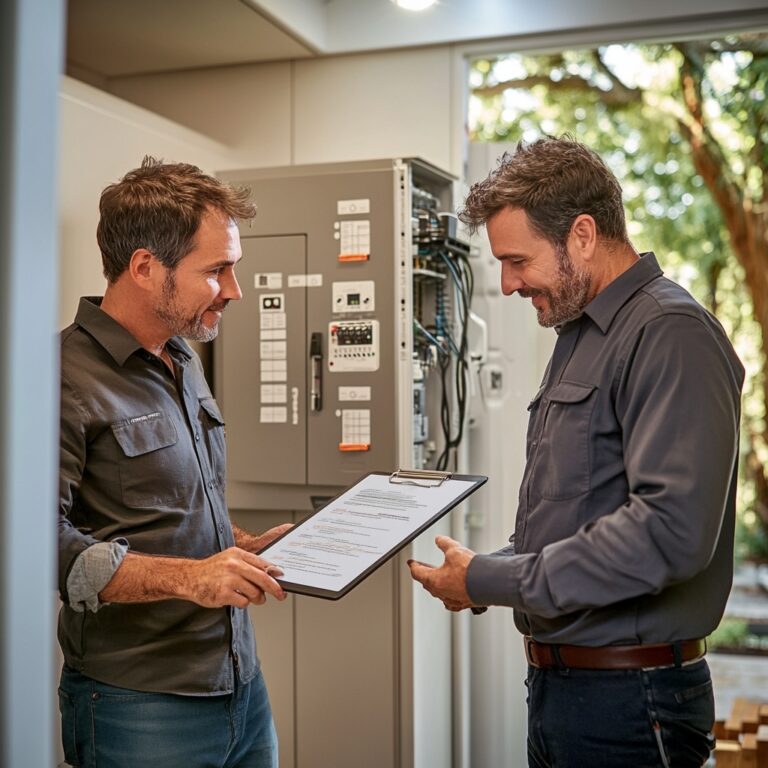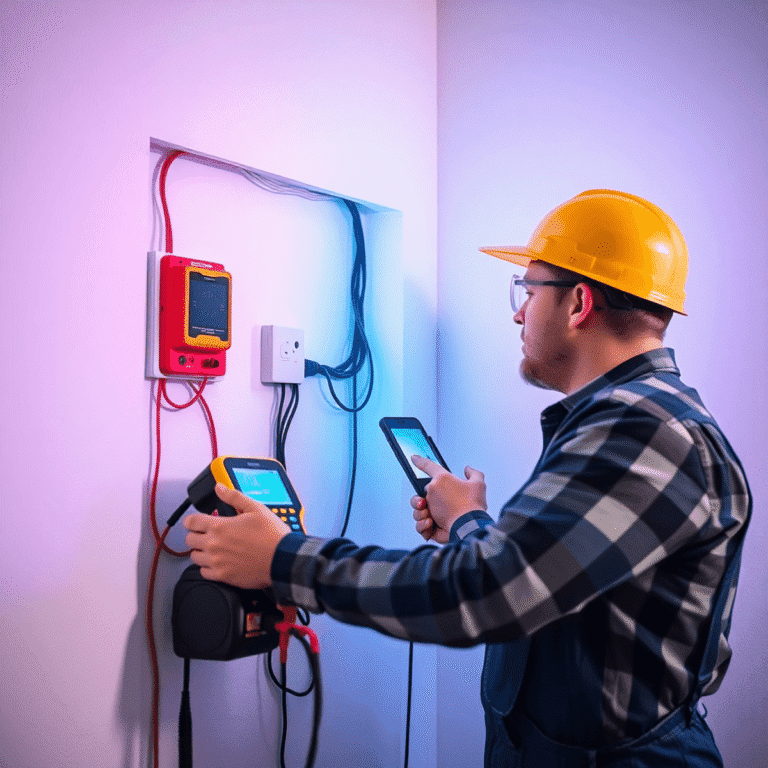The Secret Life of Smart Meters and How They Track Your Usage
Smart meters are advanced devices designed to measure and record energy consumption in real time. By automatically sending detailed usage information to utility companies, they play a crucial role in modern energy management.
Understanding how smart meters track energy usage is important for several reasons:
- Accurate billing: Ensuring you only pay for the energy you use.
- Energy efficiency: Helping you manage and reduce your consumption.
- Grid reliability: Providing utilities with data to maintain and improve service.
In this article, The Secret Life of Smart Meters and How They Track Your Usage, you’ll learn:
- How smart meters function and transmit data.
- The benefits they offer to both consumers and utility companies.
- Privacy and security measures in place.
- Real-time pricing information and customer service enhancements.
- Installation options and overall impact on energy management practices.
If you’re interested in learning more about smart meter installation or have specific questions, don’t hesitate to reach out through our contact page.
Understanding Smart Meters
What are Smart Meters?
Smart meters are digital devices designed to accurately measure and record electricity consumption. Unlike traditional meters, which require manual readings, smart meters automatically collect data on energy usage at regular intervals. This technology allows both consumers and utility companies to monitor real-time energy consumption patterns.
How Do Smart Meters Work?
One of the primary features of smart meters is their ability to record energy consumption in real time. By continuously tracking the amount of electricity being used, these meters provide detailed insights into daily, weekly, or monthly usage. This information can help you identify peak usage times and manage your energy consumption more effectively.
The Role of Wireless Communication in Smart Meters
Wireless communication technology plays a crucial role in the functionality of smart meters. These devices use secure wireless networks to transmit collected data directly to utility companies. This ensures that your energy usage information is always up-to-date and accurate without the need for manual meter readings or physical visits from technicians.
Key Features of Wireless Communication in Smart Meters
- Secure Data Transmission: Smart meters employ advanced encryption methods to protect the data being transmitted.
- Dedicated Networks: They operate on dedicated communication networks compliant with safety guidelines.
- Real-Time Updates: Utility companies receive immediate updates on energy consumption, enabling them to manage grid demands more efficiently.
Understanding how smart meters work can empower you to take control of your energy usage and contribute to a more efficient and sustainable power grid system. For further insights into the regulatory aspects and safety guidelines regarding these digital devices, the Nuclear Regulatory Commission’s report provides valuable information.
Benefits of Smart Meters
Smart meters bring clear advantages for both consumers and energy providers. Their precise tracking capabilities directly address the challenge of accurate billing. By recording detailed usage data, these devices eliminate estimated bills, making sure you pay only for what you actually use. This level of transparency reduces disputes and helps you monitor your own habits with confidence.
Benefits for Consumers
- Accurate Billing:
Eliminates guesswork from monthly statements, reflects actual consumption patterns, not averages, reduces billing errors and unexpected charges. - Energy Consumption Management:
Provides actionable insights via easy-to-read reports or apps, encourages smarter usage habits and reduced peak demand, helps set targeted goals for lowering utility expenses.
Real-world examples show families reducing their bills by shifting laundry or dishwashing outside peak hours, guided by the feedback provided through smart meter platforms.
Benefits for Energy Providers
- Efficient Grid Management:
Enables quick identification of outages or overloads, supports integration with renewable energy sources, improves response times for grid maintenance and repairs.
Energy providers leverage real-time data transmission from smart meters to optimize grid operations. Instant insights into regional demand help utilities detect outages faster, balance supply efficiently, and reduce waste. This real-time communication supports a more reliable and adaptive electricity network.
Data Collection and Transmission in Smart Meters
Smart meters operate behind the scenes, gathering energy usage details at frequent intervals—typically every 30 minutes or even less. This continuous monitoring is what makes The Secret Life of Smart Meters and How They Track Your Usage so effective. By collecting granular data, these devices can quickly identify unusual patterns such as sudden drops in power flow, which enables rapid power outage detection. Utility companies receive these signals almost instantly, reducing downtime and improving response times for repairs.
Improving Service Reliability
Service reliability takes a leap forward with this approach. The steady stream of consumption data allows utilities to spot trends, predict equipment failures, and address issues before they escalate. This proactive strategy results in fewer blackouts and a more resilient grid.
Enabling Renewable Energy Integration
The integration of renewable energy sources like solar panels or wind turbines becomes far more practical with smart meter data. When every household’s production and consumption are tracked in real time, utility providers can balance the grid more efficiently—redirecting surplus energy where it’s needed or storing it for later use.
Smart meters aren’t just about tracking your usage—they’re transforming the way electricity networks respond to challenges and support cleaner energy solutions.
This level of insight sets the stage for advances in how utilities interact with customers and manage distributed resources across entire communities.
Privacy and Security Features of Smart Meters
Smart meters prioritize the protection of your data through a combination of advanced technologies and industry best practices. The use of encrypted data transmission ensures that information sent from your meter to the utility provider remains confidential and inaccessible to unauthorized parties. Each data packet is scrambled using encryption algorithms, making intercepted information unreadable without proper authorization.
These devices rely on dedicated communication networks designed specifically for secure energy data exchange. Unlike typical internet connections, smart meters avoid standard Wi-Fi or home internet, instead utilizing isolated radio frequency or cellular networks that are built with security as a core requirement. This approach not only minimizes cyber risks but also helps maintain compliance with strict safety guidelines established by regulatory bodies.
Personal privacy remains central throughout smart meter operations:
- No personal details stored or transmitted: Only usage statistics and meter identification numbers are communicated—never your name, address, or financial details.
- No dependency on home Wi-Fi: Meters operate independently from your private network, eliminating common vulnerabilities associated with household internet systems.
- Strict adherence to safety protocols: All communication methods must meet national and industry-specific standards for data protection and electrical safety.
The focus on encrypted transmissions and dedicated networks provides peace of mind to consumers concerned about the safety of their energy usage information. This robust system aligns with the highest industry expectations for privacy and security in modern utility infrastructure.
Real-Time Pricing Information and Customer Service Enhancements Through Smart Meters
Smart meters are revolutionizing the way you interact with electricity pricing and utility services. These devices provide instant access to real-time pricing information, enabling you to see exactly how much you’re paying at any given moment. This level of transparency empowers you to make informed decisions about when and how you use electricity.
Benefits of Smart Meters
1. Time-of-Use Pricing
One of the key features of smart meters is time-of-use pricing, where the cost of electricity varies depending on demand throughout the day. With live updates, you can adjust your consumption patterns—running high-energy appliances during off-peak hours or shifting non-essential usage away from expensive peak periods. This flexibility directly translates into potential savings on your bills.
2. Remote Service Start/Stop
Another major advantage is remote service start/stop. If you’re moving house or need to transfer services, smart meters allow utilities to handle requests remotely. There’s no need for a technician visit, which saves time and reduces inconvenience.
3. Peak Pricing Alerts
Peak pricing alerts keep you in control by notifying you ahead of high-rate periods. You’ll receive instant alerts via text or app notifications so you can change your usage before higher charges apply.
4. Interactive Features
Smart meters also offer interactive features such as bill projections, consumption summaries, and personalized tips—all accessible through user portals or mobile apps provided by many utilities. These enhancements aren’t just about convenience; they create a more engaging, responsive customer experience that puts control firmly in your hands.
The Shift Towards Customer-Centric Energy Management
The integration of live data and interactive tools reflects a shift toward customer-centric energy management, where technology supports both savings and service quality. This transformation is part of a broader trend towards Advanced Metering Infrastructure (AMI), which not only enhances customer engagement but also optimizes energy distribution and consumption efficiency.
Installation Process, Customer Options, and Overall Impact of Smart Meters on Energy Management Practices
Smart meters are designed for quick installation, typically completed within an hour, and most customers experience only minimal power interruptions—often just a short outage. You don’t need to worry about major disruptions to your daily routine or business operations.
In some regions, you have the choice to opt out of smart meter installation. This option often comes with additional fees for manual meter reading services, ensuring customers retain flexibility while utilities streamline operations. For more information about such options, you can visit this FAQ page.
The widespread adoption of smart meters has shifted energy management practices by automating data collection and reducing the need for in-person visits, making energy tracking seamless for both providers and users.
Conclusion
Smart meters have transformed energy management by providing real-time insights and enabling efficient usage for households and utilities alike. With a summary of key points from “The Secret Life of Smart Meters and How They Track Your Usage,” you now know how these devices:
- Deliver precise, up-to-the-minute data for accurate billing
- Empower consumers to monitor and adjust their energy consumption
- Facilitate seamless integration of renewables into the grid
- Enhance reliability through rapid outage detection and service restoration
- Protect user privacy with encrypted, non-personal data transmission
Utility providers benefit from improved grid stability and more informed resource planning, while customers gain greater control over costs, consumption habits, and service experience. The shift to smart meters marks a crucial step in building a smarter, more responsive energy ecosystem for everyone involved.
FAQs (Frequently Asked Questions)
What are smart meters and how do they track energy usage?
Smart meters are digital devices that monitor energy consumption in real time. They record detailed usage information and transmit this data securely to utility companies using wireless communication technology, enabling accurate tracking of your energy use.
How do smart meters benefit consumers and utility companies?
Smart meters provide accurate billing through detailed usage data, help manage energy consumption effectively, and enable efficient grid management by transmitting real-time data. This leads to cost savings for consumers and improved service reliability for utilities.
How is the data collected and transmitted by smart meters kept secure?
Smart meter data is transmitted using encrypted methods over dedicated communication networks that comply with strict safety guidelines. This ensures privacy and security without involving personal information or requiring Wi-Fi or internet connectivity.
What role do smart meters play in real-time pricing and customer service enhancements?
Smart meters provide customers with real-time electricity pricing information, support time-of-use pricing plans, send peak pricing alerts, enable remote service start/stop without technician visits, and offer interactive features like notifications to enhance the overall customer experience.
What does the installation process of smart meters involve, and can customers opt out?
Smart meter installation is typically quick with minimal power interruptions. In some areas, customers have the option to opt out of smart meter installation but may incur fees for manual meter reading services.
How do smart meters contribute to renewable energy integration and outage detection?
By collecting data at frequent intervals, smart meters enable quick detection of power outages and support the integration of renewable energy sources into the grid, improving service reliability and promoting sustainable energy management practices.

